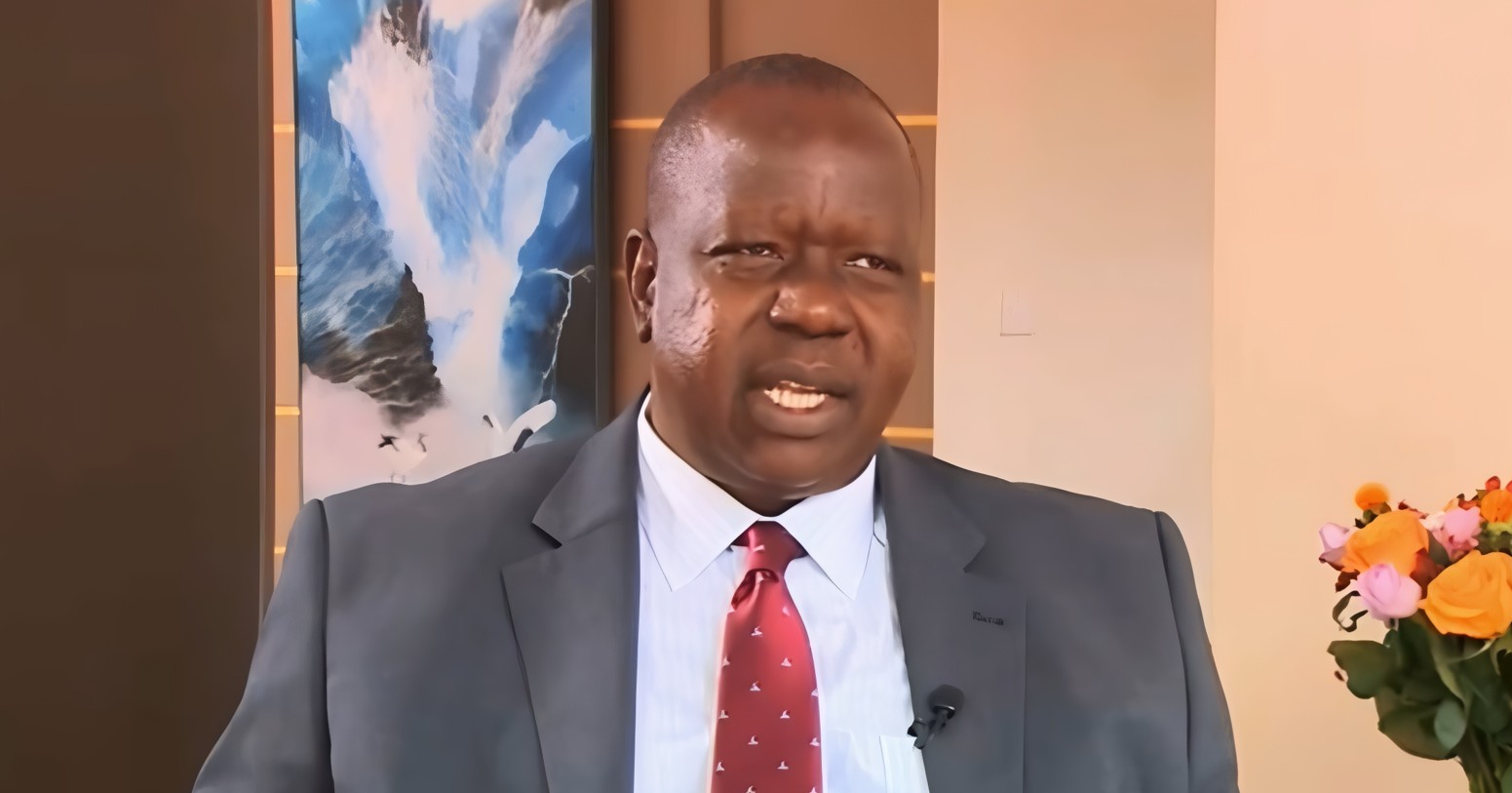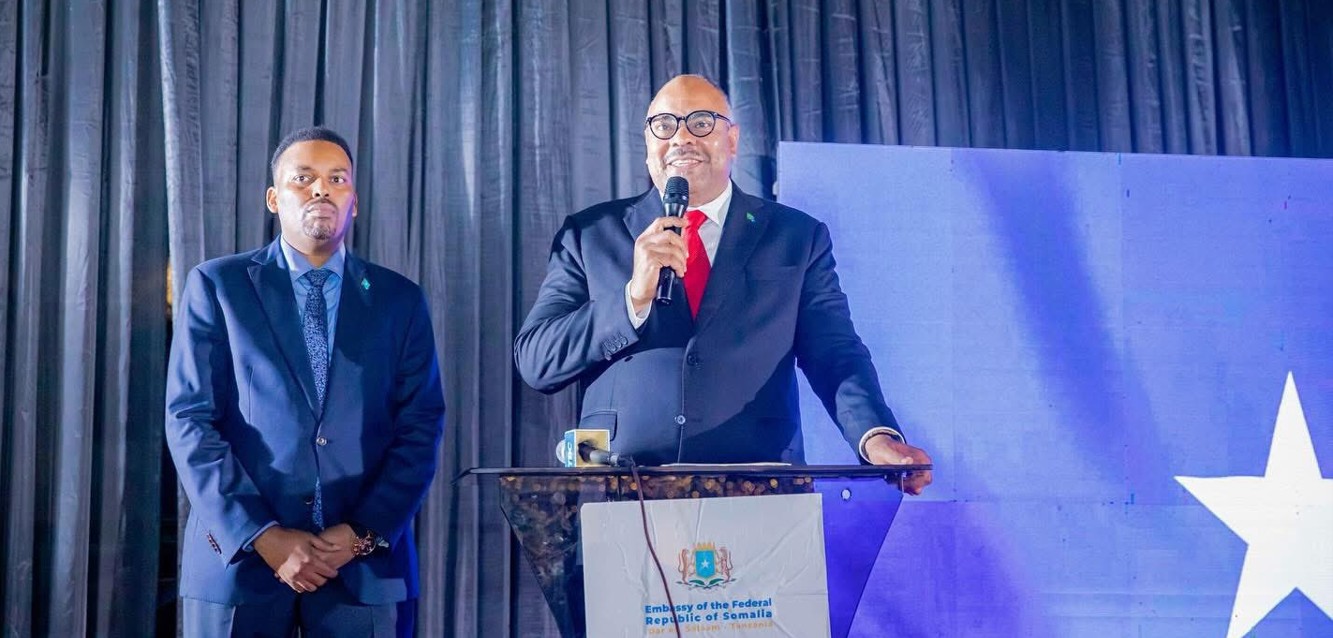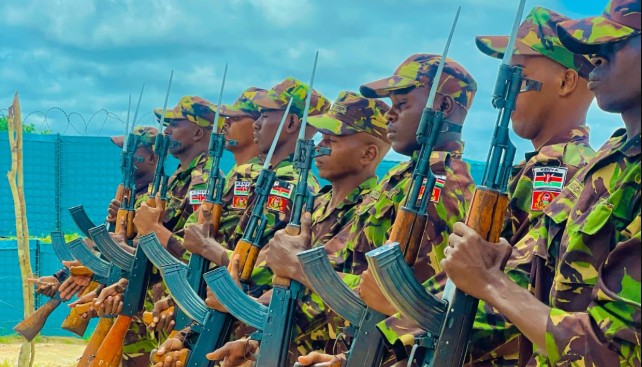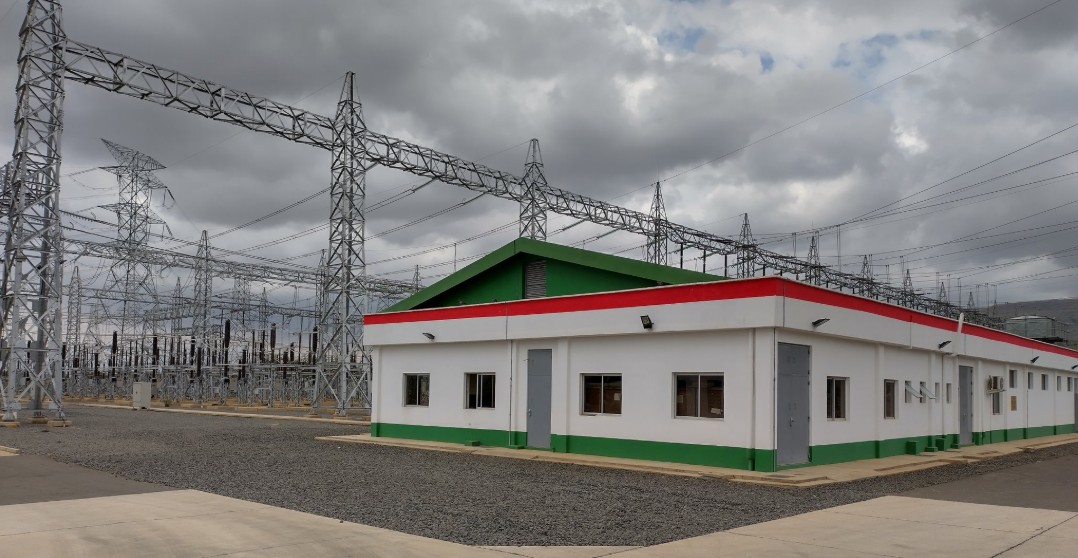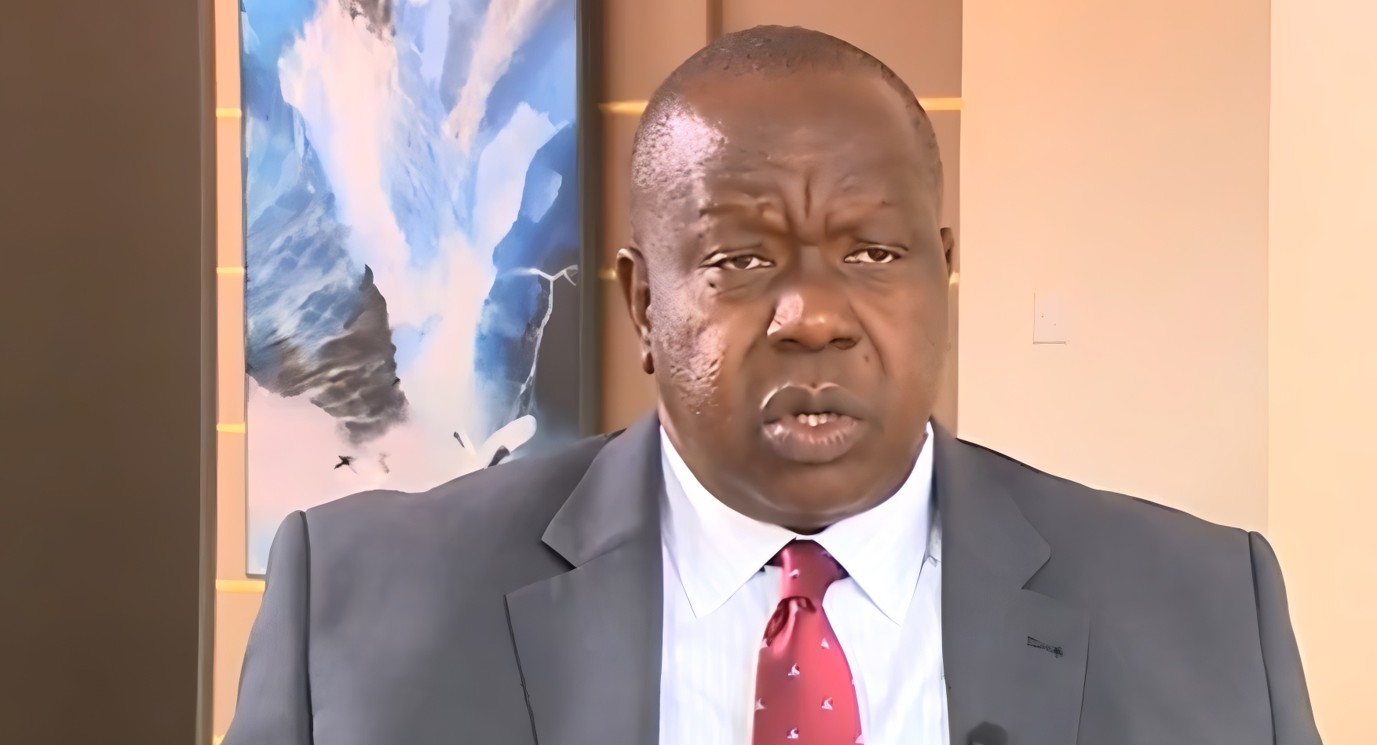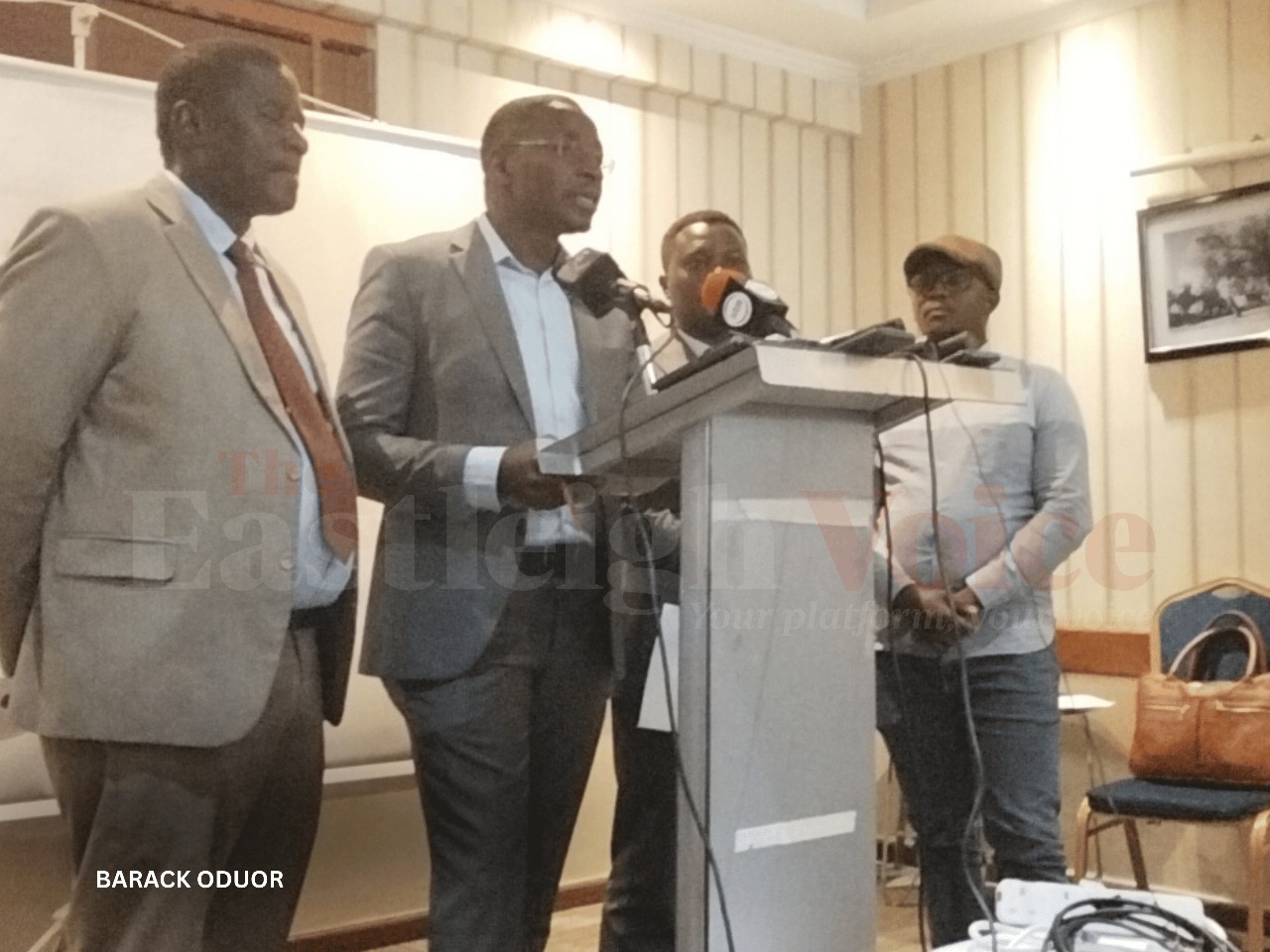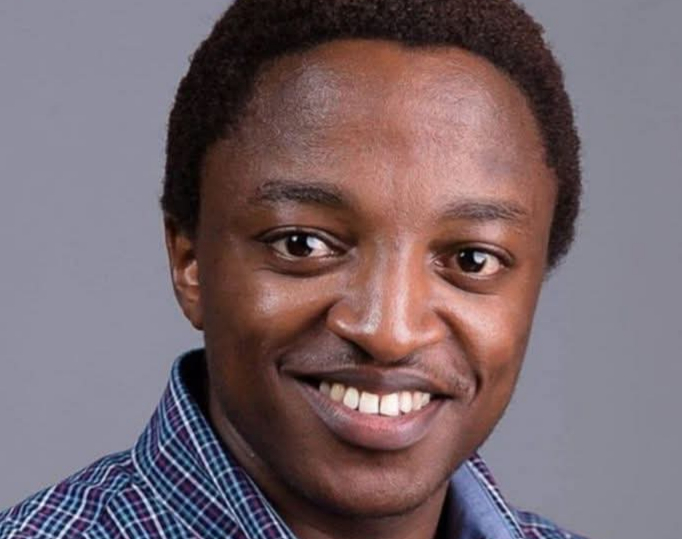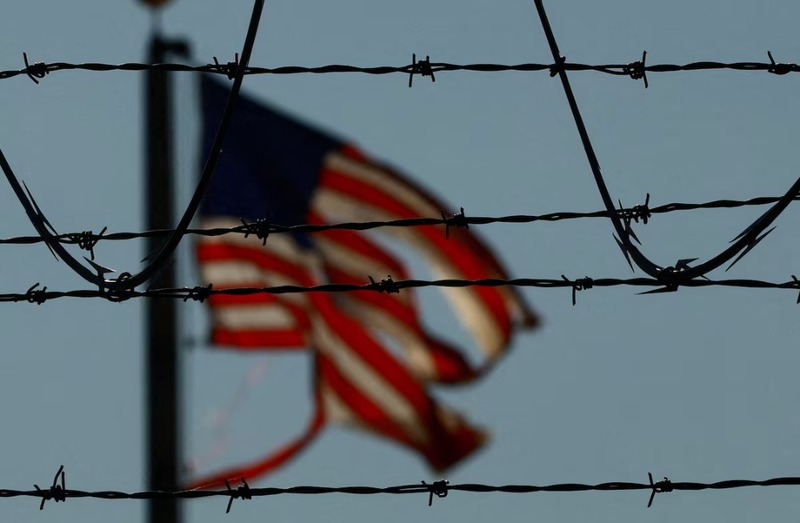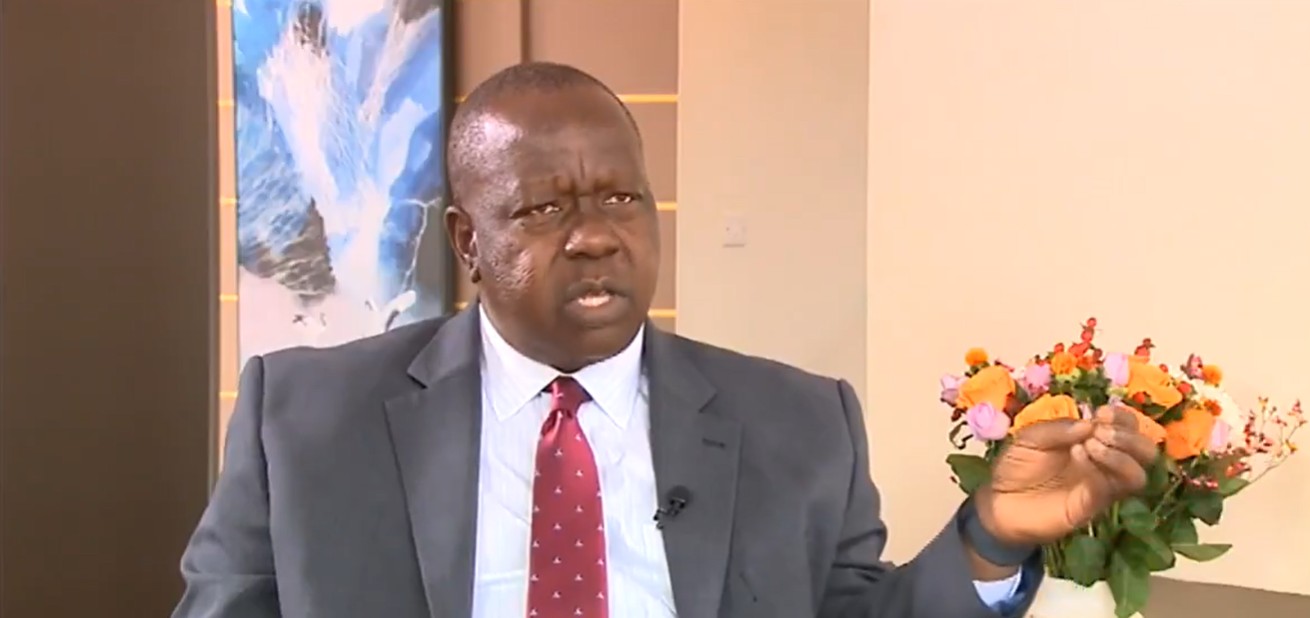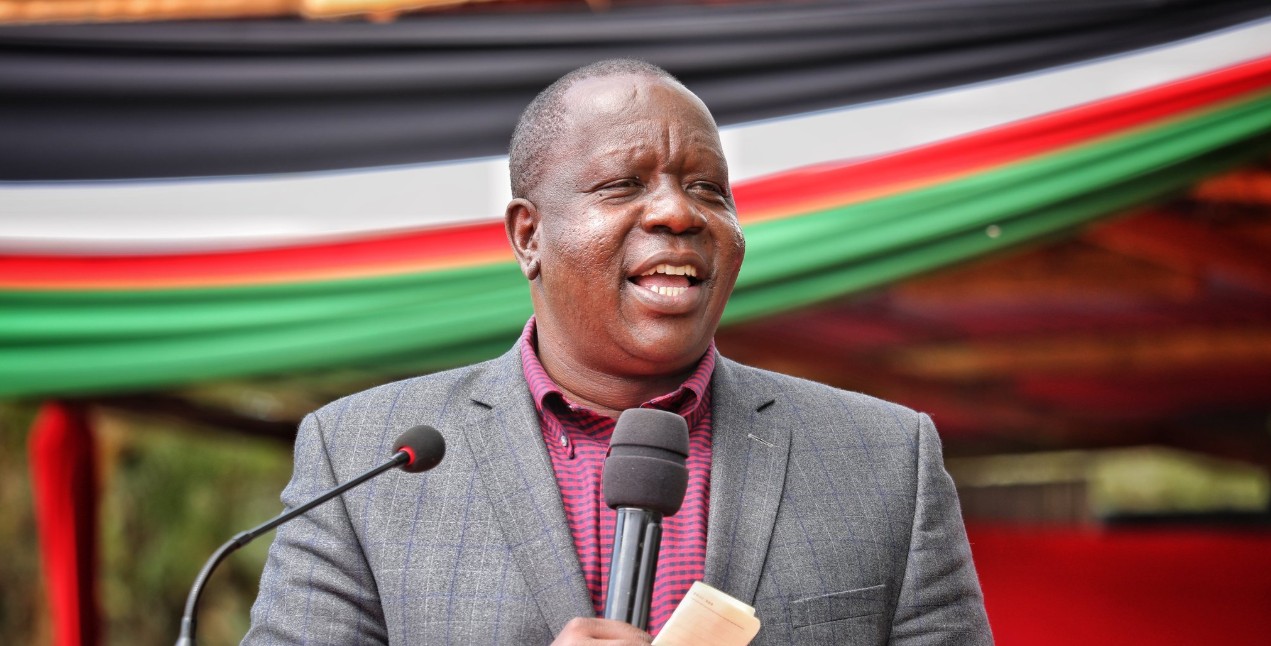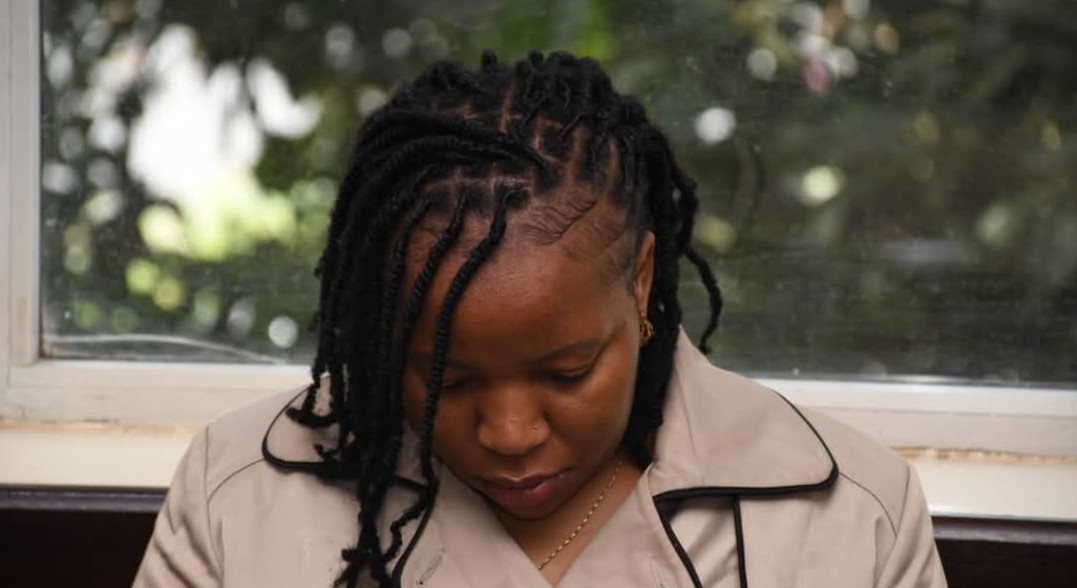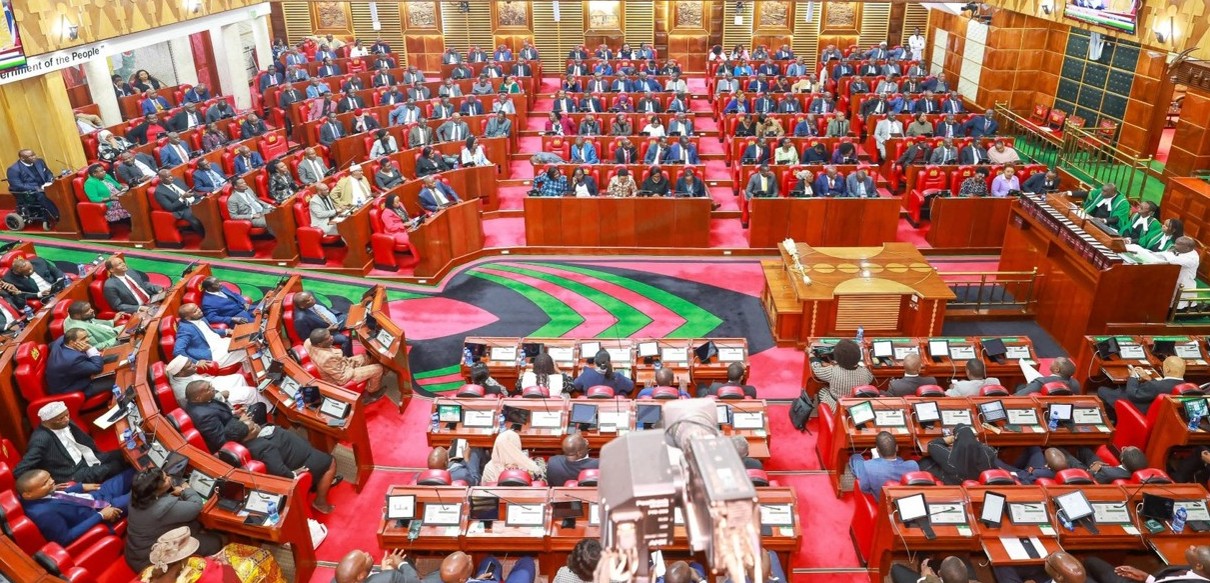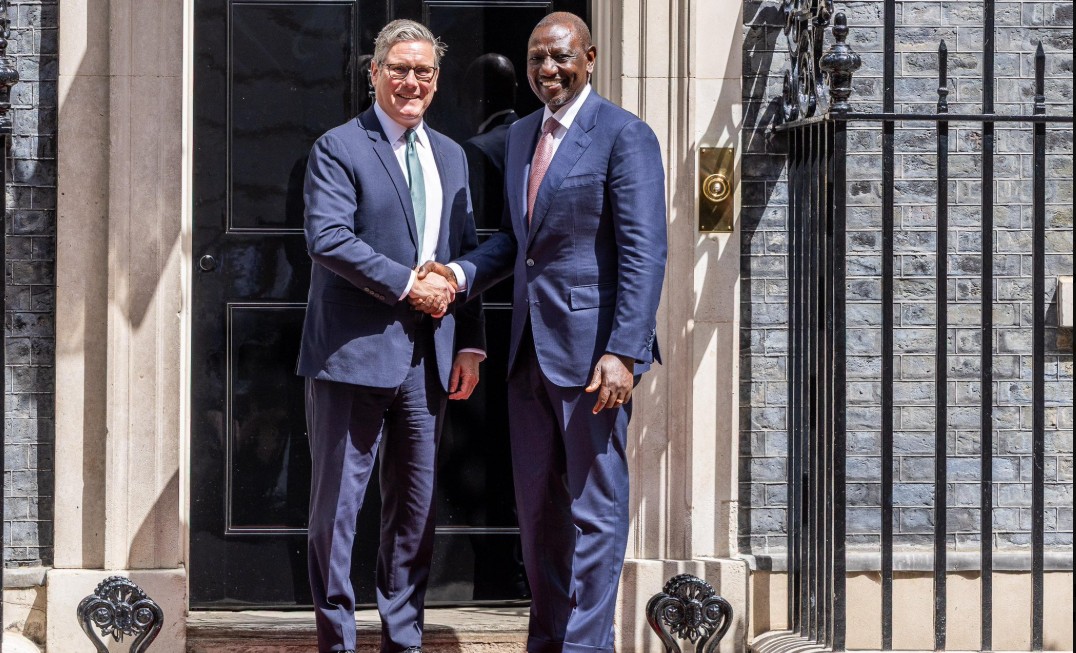Mudavadi meets Congolese President in Kinshasa to ease escalating tensions
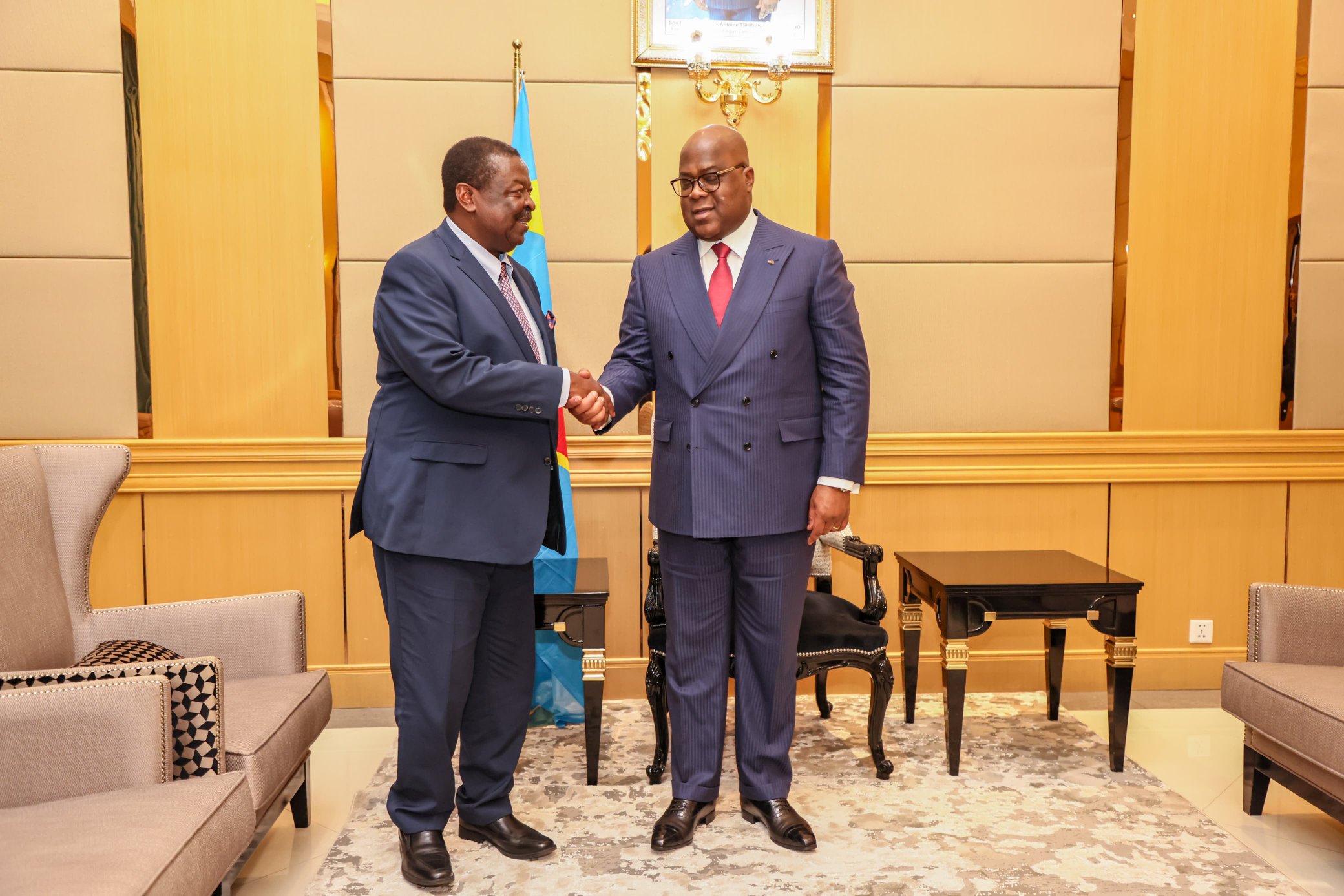
The senior Kenyan foreign policy official emphasised Kenya’s commitment to fostering cordial and closer cooperation with Kinshasa, reaffirming respect for the territorial integrity and sovereignty of the Democratic Republic of the Congo.
Kenya’s top diplomat Musalia Mudavadi met with Congolese President Felix Tshisekedi in Kinshasa on Thursday.
The pair worked to diffuse tense relations between the two countries, which have sparked in recent weeks over Kinshasa’s arrest of two Kenya Airways staff, and Kenya’s inaction when the M23 rebel leader, Bertrand Bisiimwa launched a political-military outfit aimed at overthrowing the Kinshasa government on Kenyan soil last December.
More To Read
- Mudavadi defends state’s handling of June 25 protests, slams foreign envoys ‘for overreach’
- Juliana Lumumba’s fight for answers: Will Belgium be tried for Congo’s founding Prime Minister’s death?
- Kenya, Finland reaffirm support for Somalia peace efforts amid ATMIS drawdown
- At least 29 killed as unseasonal heavy rains devastate DRC capital Kinshasa
- Kenya doubles down on One-China Policy to woo Beijing
- Nairobi shifts position on Western Sahara, endorses Morocco’s autonomy plan
“Kenya remains committed to strengthening relations with DRC based on shared values and prosperity,” Mudavadi, who is Kenya’s Foreign and Diaspora Affairs Cabinet Secretary posted on the X platform, thanking the Congolese leader for “intervention in amicably resolving the incident involving Kenya Airways.”
The senior Kenyan foreign policy official emphasised Kenya’s commitment to fostering cordial and closer cooperation with Kinshasa, reaffirming respect for the territorial integrity and sovereignty of the Democratic Republic of the Congo.
“We reassure the Congolese people that we will work with them for peace and stability in this country,” Mudavadi told Tshisekedi during their meeting at the Palais de la Nation, which translates to “Palace of the Nation” in English, an equivalent of Kenya’s State House.
When Kinshasa’s military intelligence arrested Lydia Mbotela, a Kenyan managing the Kenya Airways station at N’djili International Airport, Nairobi got restless due to certain concerns.
Firstly, according to diplomatic sources, Kinshasa had completely severed communication channels with Nairobi, accusing it of allowing activities involving a group they have labeled as “terrorist”.
Moreover, at the time of Mbotela’s arrest, Nairobi lacked high-level diplomatic representation in Kinshasa.
This was due to the deliberate delay by the Tshisekedi-led government in accrediting the newly appointed Kenyan envoy, Shem Amadi, a retired Kenya Air Force colonel.
Amadi arrived in the Congolese capital last December amidst the diplomatic meltdown and has yet to present credentials to President Tshisekedi.
Subsequently, Nairobi deployed Kevin Thuo, one of the finest diplomats, to serve as chargé d'affaires in late April, initiating his diplomatic mission.
Thuo, an assistant director at the State Department of Foreign Affairs at the time, was previously serving as the Deputy Head of the Middle East Directorate.
The foreign office’s social media post “extended best wishes to Thuo for success as he embarked on his mission in the brotherly country of the DRC in coming days”, signaling a recognition of the challenging circumstances.
What triggered this shift was the suspension late last month of Kenya Airways flights to Kinshasa.
This was after the Congolese military intelligence detained two of the airline’s employees, a Kenyan national manning the station at N’djili airport and a Congolese citizen. Nairobi’s intervention led to their subsequent release on the evening of May 6.
Foreign Principal Secretary Korir Sing’oei said Nairobi engaged in vigorous diplomatic efforts, resulting in the release of its compatriots.
He praised the Kenyan diplomatic team, led by career diplomat Kevin Thuo, for skilfully negotiating the release.
President William Ruto’s encounter with DRC President Felix Tshisekedi in Dar es Salaam on April 26 did little to ease the mounting tensions.
While attending the 60th-anniversary celebrations of Tanzania’s and Zanzibar’s union, the two leaders engaged each other briefly.
However, back in their respective capitals, the detention of the Kenyan Airways employees was straining diplomatic relations.
The detainees, a Kenyan and a Congolese were apprehended for their alleged involvement in the attempted export of $8 million (Sh1 billion) in banknotes, purportedly unfit for circulation.
The money was destined for the reserve federal office in New York but was intercepted by Congolese security forces at N’djili International Airport, reportedly concealed in crates.
This rift marked a huge downturn in the once-promising relationship between Kenya and the DRC.
When did things start going wrong?
In February 2022, Kenya’s then Deputy President William Ruto, who is now president, drew online criticism from Congolese communities for remarks deemed offensive.
During a campaign rally in Nyeri, Ruto was captured on video pledging to boost investment in livestock farming so that Kenyans could export their products to the DRC.
He said despite the DRC’s large population, it lacked enough cows and had to import milk.
Ruto’s comments didn’t end there. He also commented about Congolese people’s dressing, referring to their style of wearing high-waist trousers.
When Ruto assumed the presidency, Kinshasa’s congratulations were notably delayed, a move pundits attributed to the remarks he made earlier and the close ties between Ruto’s predecessor Uhuru Kenyatta and opposition leader Raila Odinga.
Kenyatta had convinced Tshisekedi to consider joining the East African Community, citing various reasons, notably the need to address the deteriorating security situation in eastern DRC.
During this period, Kenyan economic interests expanded significantly in the mineral-rich country, with strong support from the Tshisekedi administration.
By the time DRC became a member of the bloc in April 2022, Kenya’s Equity Bank had already established a presence in Kinshasa through a merger with Banque Commerciale du Congo, forming Equity BCDC.
Top Stories Today

